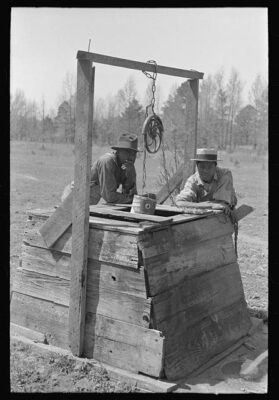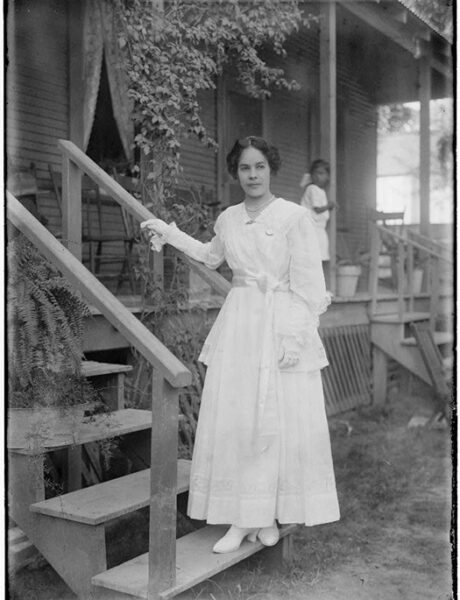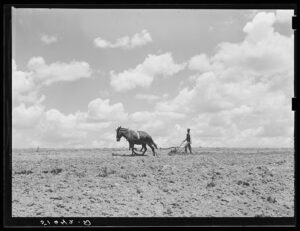Red Brick House
She was nearly as old
as the red brick house
where she lived and
she was a proper, old-fashioned lady,
a widow with a son and
daughter-in-law who dutifully, but
reluctantly checked on her
once a week but it was
her grandson, my friend Kevin,
that she cared about.
He visited her almost every day and
she made him little finger sandwiches and
chocolate milk with real cocoa and
one day I visited her with Kevin and
she treated me like I actually belonged in her house
instead of being the poor side of town mutt that I was.
Many years later I came back and saw the
red brick house and thought of that kind
little grandmother and my friend—both
gone many years now—and I felt the
emptiness of long life and the vanity of hope and
ambition and I missed the days of my youth terribly but
they are long past and, hard as I try to hold onto them,
fading further into the depths of diminishing memory
soon to be unremembered and extinguished.
**
New Year’s Eve: Mazatlan
From the second floor patio outside
his room at the Mar del Pacifico hotel,
he heard the sound of the unseen ocean
lapping against old Mazatlan’s
crumbling concrete sea wall.
It was New Year’s Eve, and
to the north, twenty minutes by city bus,
were new hotels, new bars,
catering to new tourist needs and
college kids down for the holidays.
Life in the old town was slower, quieter—
a good place to wait for a long-expected call.
Downstairs, at the check-in desk, checking again.
“No, señor,” for the fourth time, nada, nothing yet.
“No problem,” he said, “thanks anyway.”
Upstairs, New Year’s arriving,
an opened bottle of red wine
meant to be shared,
a full glass poured, drained,
another poured.
Letting milk chocolate
dissolve with more wine,
he went back out onto the patio,
listened to the sea, the softly lapping sea,
its rhythms gentle, monotonous, constant.
Somewhere down the beach to the right
the sound of revelers, the explosion of fireworks.
There was no mistaking this change from old to new,
a fait accompli.
Back in the room then, the silent, empty room,
there was no stopping time, it went with you or without you,
carried you along—with no options,
no going back, only forward,
there was nothing else to be done.
**
Orphan
Cold mist drifting down
floating onto gravestones,
coating them with a silvery sheen.
In back, beyond the last graves, a
huge oak tree, leafless,
limbs gnarled, bark as gray as the
dull sky above.
Nearer, graves of great-aunts and uncles,
nearly-forgotten faces vaguely recalled, and
closer still the closer ones—grandparents,
sisters and brothers of mothers and fathers,
all gone now, lives echoing only in memory,
joy, pain, all struggles over now.
And closest yet, mother, father,
empty places in heart and mind,
gone now, nor flesh nor touch
never felt again,
the empty, unfilled places,
not to be filled, ever,
solo then, without parent,
alone for the rest of time,
time’s child, time’s orphan.
**
To Stop a Cockfight
They went down to Cuba by themselves,
avoiding the usual emotional hangers-on,
to soak up the ambience maybe
or to dry him out or soak up more
alcohol or self-pity or whatever it was
they liked to soak in—
he for his writing, she for her art.
She was still recovering
from yet another nervous collapse
that his drinking, philandering, and more drinking
did little to stave off.
They went to the Floridita and drank where
they and Papa used to drink and stayed in a fine hotel
and got themselves a driver who knew where
all the good stuff was hidden in those hot
sultry Havana nights and he told the driver
to take them where the action was.
The driver pulled up to a Gallera,
opened the doors for them.
The experience they sought lay within
the driver insisted, beyond that green door
over there.
Inside it was a madhouse.
Perfect for her. It made her feel normal.
The bettors were yelling, their birds squawking,
Chicken blood flying.
They were in trouble right away.
She flirted ostentatiously with the men,
he laughed and leered suggestively.
When the first cock was cut,
when its back legs were sliced and
dangling uselessly, she cried,
screamed at him to stop the fight.
Gallantly, he strode toward the ring
demanded an end to the slaughter,
argued with the gamblers, the officials,
threw a bottle at the cocks.
In a heartbeat, the gamblers were on him
kicking, hitting, beating him nearly senseless.
She cried at the violence, tried to rescue him,
was pushed aside roughly.
Luckily the driver intervened,
drug them out of the place, apologized,
dropped them at a hospital.
Inside, she worried his battered, once handsome face,
begged help for him, got him a room.
After, she went back stateside without him,
resumed her treatment.
He was flown home to a hospital,
to dry out and recover.
For the next eighteen months they exchanged letters
but they never saw each other again.
Then one day his overtaxed heart simply gave up.
She may or may not have cried, no one could tell,
she completed her treatment, made a new life for herself,
never once looked back.







